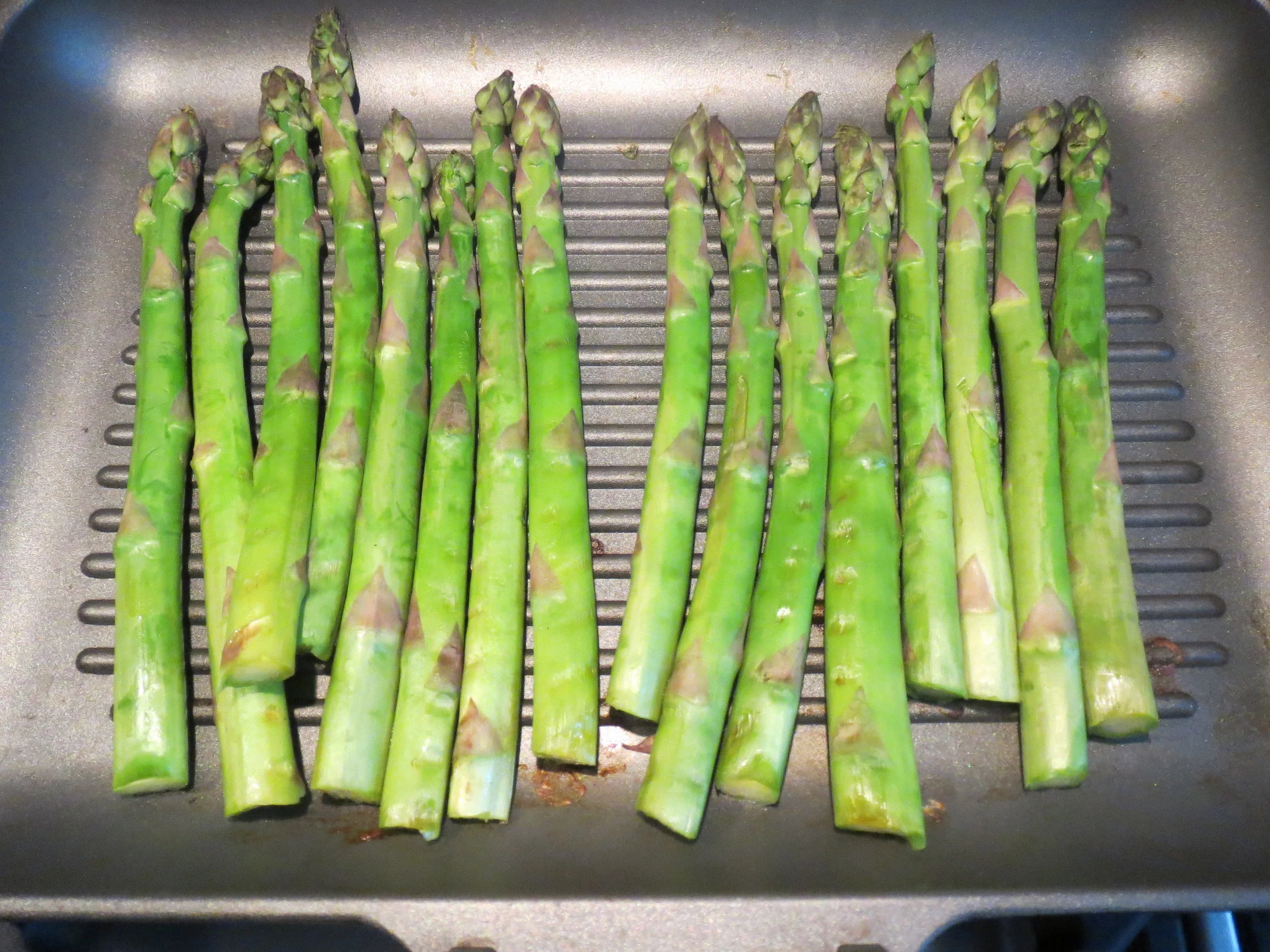It's asparagus season and as it is a particular favourite in our house we really make the most of it... ;-)
So if you are eating it a couple of times a week like us it is nice to find some different ways to cook it. Here are the four ways I swap between.
First of all though, the preparation... if you are not used to it.
Asparagus come in green or white varieties. Both delicious but we manage to get the green ones in our local market so we tend to eat those. I always wash them and then take off the woody ends.... I test with a knife to see at what moment the knife passes easily through the asparagus and cut there. It depends one each one but is usually 2-3cm off the bottom.
1) Steamed
the first way I ever ate asparagus - cooked almost standing up in the pan as the bottom of the asparagus needs more cooking than the top (which is great just steamed). Just put a small amount of water in the bottom of the pan and this way takes 5-10 minutes (again depending on size of asparagus and how much you like it cooked)
2) Grilled
For this I use a griddle pan which I put on the top of the stove
Cook them until lightly browned
3) Baked
This is one of my new ways this year and absolutely divine. Put the raw asparagus in an oven dish and drizzle with olive oil and lemon juice and add a whole lemon cut in quarters. Bake for about 15 minutes.
4) Raw
For this the asparagus need to be really fresh and crunchy. Simply chop them into circular pieces up the stem and eat as a salad - again with some olive oil and lemon juice.
Serving suggestions
Asparagus love lemons (as you may have guessed from above!), and of course a good quality olive oil and black pepper. For me this is the simplest and best way. However I also enjoy them with a poached egg or crumbled hard-boiled eggs mixed with chopped parsley. Just the parsley and lemon juice is also good.
Sometimes for a very complete meal I will just add them on top of a grain dish like this one with quinoa.
Finally - why bother?
1. It’s loaded with nutrients: Asparagus is a very good source of fibre, folate, vitamins A, C, E and K, as well as chromium, a trace mineral that enhances the ability of insulin to transport glucose from the bloodstream into cells. It is also a particularly rich source of glutathione, a detoxifying compound that helps break down carcinogens and other harmful compounds like free radicals.
2. Asparagus is a brain booster: Another anti-aging property of this delicious spring veggie is that it may help our brains fight cognitive decline. Like leafy greens, asparagus delivers folate, which works with vitamin B12—found in fish, poultry, meat, dairy and spirulina —to help prevent cognitive impairment.
3. It's a natural diuretic: It contains high levels of the amino acid asparagine, which serves as a natural diuretic, and increased urination not only releases fluid but helps rid the body of excess salts. This is especially beneficial for people who suffer from edema (an accumulation of fluids in the body's tissues) and those who have high blood pressure or other heart-related diseases.
How do you like your asparagus?



